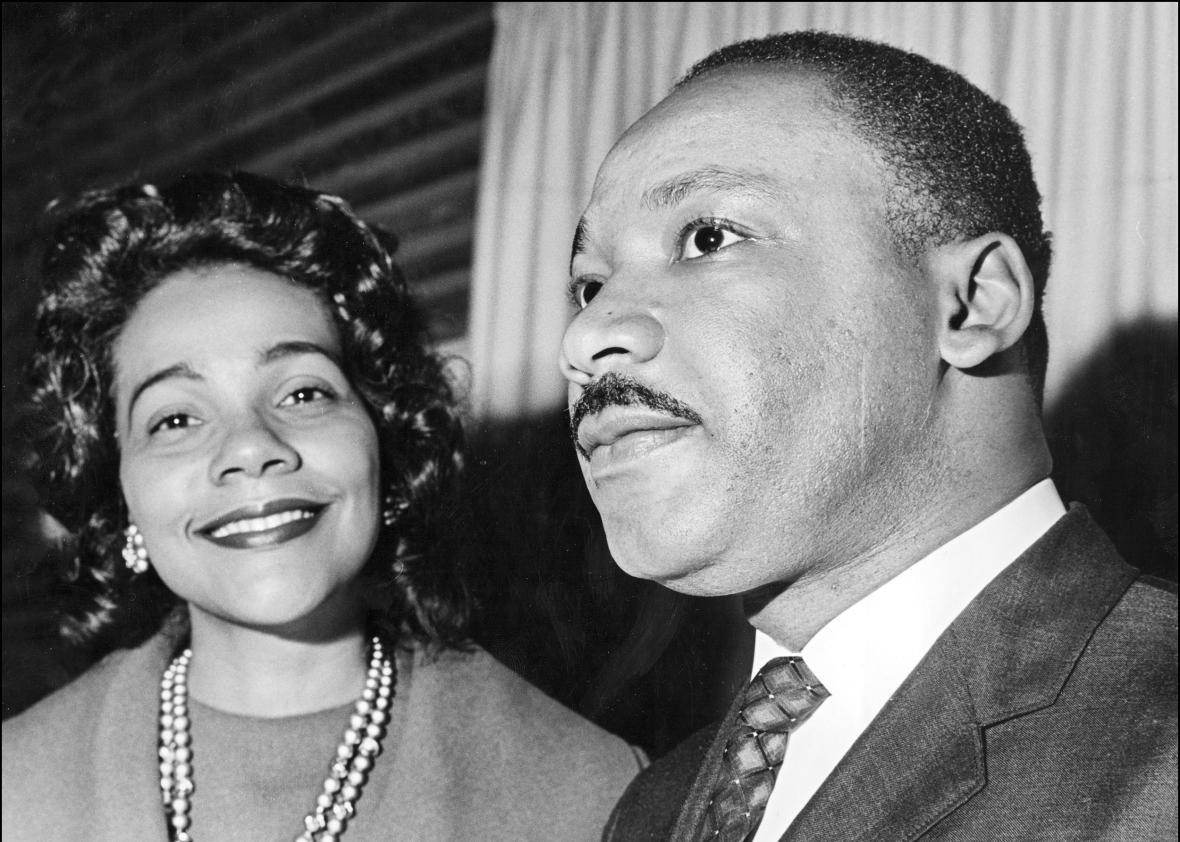As a U.S. attorney in Alabama, Jeff Sessions harassed black voters with prosecution, doing “what the local sheriffs accomplished twenty years ago with clubs and cattle prods,” according to a letter Coretta Scott King wrote in 1986.
In the wake of the first day of confirmation hearings for Sessions, Trump’s nominee for U.S. attorney general, the Washington Post published a previously unreleased letter King wrote to the Senate Judiciary Committee in 1986. At the time, Sessions was up for a federal judgeship.
The Senate didn’t confirm him back then; too many members were troubled by Sessions’ committed history of taking actions with explicitly racist outcomes. They may have been influenced by the words of Martin Luther King Jr.’s widow, who wrote that elevating Sessions to the bench would “irreparably damage the work of my husband.”
“Mr. Sessions has used the awesome powers of his office in a shabby attempt to intimidate and frighten elderly black voters,” King wrote in her nine-page testimony, which she submitted in lieu of an in-person appearance.
Most of King’s letter focuses on Sessions’ prosecution of three black community organizers in Alabama who worked to register black voters. Sessions brought voter-fraud charges against them—ignoring, King wrote, allegations of white activists using the same absentee-ballot tactics to get out the vote.
“The investigations into the absentee voting process were conducted only in the Black Belt counties where blacks had finally achieved political power in local government,” she wrote in the letter. “Whites had been using the absentee process to their advantage for years, without incident. Then, when blacks, realizing its strength, began to use it with success, criminal investigations were begun.”
The chair of the Judiciary Committee is the only person with the legal power to release King’s written testimony into public record. In 1986, the chairman was noted racist Strom Thurmond, who unsurprisingly declined to make King’s letter public. The current chairman, Republican Sen. Chuck Grassley, could also have released King’s letter, but, as he believes Sessions is “very honorable” and a “man of integrity,” had little incentive to do so. The Post did not disclose the identity of the person who provided the letter to reporter Wesley Lowery.*
In addition to intimidating black voting rights activists, Sessions has supported literal chain gangs and worked to keep black judges off the federal bench in Alabama. He was a hard-charging general in a sadistic war on drugs who imprisoned hundreds of thousands of men of color for nonviolent offenses while white drug users walked free. King’s letter, written before Sessions even did his damage as Alabama attorney general, is a sobering reminder of the cover government office gives people to wield their power over the marginalized and vulnerable.
“Anyone who has used the power of his office as United States Attorney to intimate and chill the free exercise of the ballot by citizens should not be elevated to our courts,” King wrote in 1986. “I believe his confirmation would have a devastating effect on not only the judicial system in Alabama, but also on the progress we have made toward fulfilling my husband’s dream.” Her words are no less true today.
*Correction, Jan. 11, 2017: This post originally misspelled reporter Wesley Lowery’s last name.
